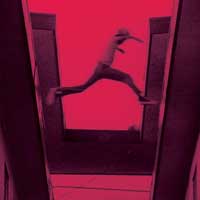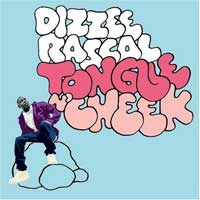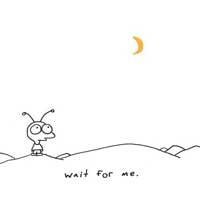A selection of albums to kick-start your summer listening.

Mamane Barka
Introducing (Sheer Sound)
Fans looking for a unique African sound should track down this album. Mamane Barka, whose initial musical focus was the gurumi — the two-stringed, skinny-necked relative of the banjo — can now claim to be the only working musician in the world to master the biram. The biram looks like a small canoe, with hide stretched over the top and five strings attached to its centre. In 2002 Barka headed off to Chad to learn the art of the biram from the only remaining biram expert, Boukar Tar. Tar has since passed away, leaving Barka alone to continue with this instrument’s tradition. On Introducing Bakar is joined by percussionist Oumarou Adamou, who at times overshadows Barka’s gentle string work. But when the two hit their strides, they are unstoppable and fans of Mali’s Tinariwen and Afel Bocoum should lap it up. The album’s highlight has to be Kiota, with its gentle electric guitar atmospherics, but the whole album is enchanting. Gentle West African desert blues for the listener looking for new flavours. — Lloyd Gedye

Mos Def
The Ecstatic (Just Music)
If there is one thing Mos Def is good at, it’s pushing the envelope and daring to be different. In his fourth solo album, titled The Ecstatic Mos, he shows us the future of hip-hop music without forgetting some of the roots of its past. The Ecstatic, as with other Mos Def albums, is prefaced by Malcolm X speeches. This time it has lines taken from X’s 1976 appearance at Oxford, when the United States’s popular black Muslim told the young generation of fellow citizens that they were living in “a time of extremism”. After the hip-hopper’s swift move to film he had fans thinking they’d lost him to Hollywood forever, but we can rest assured Mos Def hasn’t deserted us and still keeps it “real before anything”. History is a personal favourite of mine, with J Dilla on production. After listening to the 1999 hit record Black on Both Sides you know there’s little that can go wrong when Mos Def and Talib Kweli get together on a track — and to add cream to an already fattening vetkoek, some of hip-hop’s best beat-makers, Madlib, J Dilla and Oh No, are featured on production. — Karabo Keepile

Dizzee Rascal
Tongue ‘n Cheek (Just Music)
Tongue ‘n Cheek is a raucous bunch on fun. As Mr Rascal sings: “Some people think I’m bonkers, but I just think I’m free.” Winning a Mercury Prize in 2003 for his debut album, Dizzee Rascal has just kept on trucking, proving the adage — if you can’t do the time, don’t do the grime. So you’ll find all the crunchy beats, wildly braggadocio lyrics (“You might still catch me kicking back on a luxury cruise / With a freaky model blowing me like a didgeridoo”) and absurd humour (see aforementioned didgeridoo) of early Dizzee, but with a freedom to grow beyond the grime that defined his earlier work. The Tiësto collaboration Bad Behaviour could have been a lowlight, but Dizzee rises above his Dutch trance partner, or possibly Tiësto steps up to the bass line. Either way, it works. So the album’s worth a dump to your mobile’s playlist, but it’s not worth discoursing on. Top dance producers, some delightful sampling, beats that bracket chill and thrill and lyrical flourishes give you all you need to pump you up on a Saturday night. — Chris Roper

Buika
El Último Trago (Gallo)
Spanish singer Buika’s new album is a tribute to the great Mexican chanteuse Chavela Vargas, recorded in Cuba with pianist Chucho Valdés. Buika, who was born to parents from Equatorial Guinea, grew up in Mallorca among Gypsies who taught her the traditional flamenco. Her decision to pay tribute to Vargas is an inspired one, resulting in a rich, nuanced album that blends flamenco, jazz, rumba and soul effortlessly. Buika doesn’t try to copy the grand old lady of Latin America’s singing style — rather she imbues songs with her own flair, much to the delight of film director Pedro Almódavar, who contributes liner notes for the album. Almódavar is a declared fan of both women’s work, having featured them in his films over the years. If you’re looking for a romantic album to woo the object of your affections, this album is guaranteed to be your wingman or woman. — Lloyd Gedye

Wilco
Wilco (The Album) (Gallo)
So Jeff Tweedy kicked his drug-and booze-fuelled lifestyle to the kerb a few years back and many suggested he had lost his mojo when he released Sky Blue Sky in 2007, an album that had more in common with the Eagles and Paul McCartney’s Wings than his country roots. Now he is back with a self-titled album and, considering that this is the band’s seventh studio album, the fact that it is self-titled is rather significant. For once Tweedy sounds comfortable in his own skin, as though he has accepted his lot in life and is ready to explore his band’s future on new terms. Opener Wilco (the song) is a gentle rocker, somewhere between the Rolling Stones and Stephen Malkmus, which sees Tweedy, rather sentimentally, declaring his love for his fans. Other highlights include the motorik Bull Black Nova, which harks back to A Ghost is Born-era Wilco, and You Never Know, a pop song reminiscent of George Harrison”s best work. But the truly great thing about Wilco (The Album) is that it is solid from start to finish, one of those albums that keeps on giving, like a good friend. Scratch that, a great friend. — Lloyd Gedye

Rodrigo y Gabriela
11:11 (Just Music)
Mexican duo Rodrigo Sánchez and Gabriela Quintero chose every song on their album as a tribute to their favourite artists, such as Pink Floyd and Jimi Hendrix, and the result is another fun-filled, amazing album. The pair are talented beyond words and sometimes it is mind-blowing to imagine that it is only a duo playing and not a whole band of guitars. Their fingers assault the guitars as deftly as a pickpocket in a tube station, but the music also reflects deep passion that can be found in their roots as heavy metal rockers in Mexico City. They also did the street-music circuit in Europe, but since then they have found a bigger following than just the small crowd that would gather around them to hear them pick their way around covers. These days the pair are to be found in Dublin, from where they have launched their immensely successful career. The title refers to the 11 acoustic guitar tracks on the CD, but is also the title of the last track, dedicated to Pink Floyd. Though the songs pay homage to other artists, Rodrigo and Gabriela wrote each of the songs themselves. The Jimi Hendrix tribute, Buster Voodoo, struts as much as the great man himself did and is also a highlight on the album. Another track that catches the spirit of a great group is the Pink Floyd tribute, 11:11, which concludes the album with the almost mysterious, creepy sound the group were known for. Hanuman, dedicated to Carlos Santana, captures something of the passion of the guitar legend. The duo also pay tribute to a number of Latin-American artists. Although they are reluctant to classify their music as flamenco, the style does appear in a few of these tributes. Master Maqui, dedicated to flamenco master Pastor De Lucia, charmed the socks off me, for one. The album will bring definite atmosphere to a dull Sunday afternoon. Buy with a smile. — Yolandi Groenewald

Dirty Projectors
Bitte Orca (EMI)
How have I missed this band’s past eight or so recordings? They’re fantastic. Not too many bands can make pop music that’s beautiful to listen to, but also intensely pleasurable to try to understand. Random examples Beirut and Sparklehorse spring to mind, although we’re stretching the definition of pop a bit here. Arty indie rock can often be a patchy affair, careering between inspired ideas and makeshift moments. Bitte Orca is a complete album, with its light-hearted melodies as integral to the sound as its complex vocal acrobatics. And when your female vocalists are called Amber and Angel, you’re already making a statement. In an interview with Pitchfork, band leader Dave Longstreth said: “I like music that is larger than life and can overwhelm as it beguiles. I mean, you know, if you had to describe it in words. Of course, the great advantage of music is that you don’t have to. Since I don’t have that advantage, I’ll have to say things such as ‘dissonant time signatures duel with prickly drums, ethereal vocals dance with eccentric guitar’. Or, more simply: ‘You’ll love this album. Go buy it.'” — Chris Roper

Moby
Wait for Me (EMI)
Moby always gave the impression of being a musician who was yearning to create a certain sound but was peer-pressured into making music that the cool kids would like. Now he’s older, reflective and trying to catch up. But it may be too late. Wait for Me, his ninth album, came about after he heard filmmaker David Lynch talk about creativity without the external influences of CD buyers and general economics. It’s more melodic, gentler and prettier than its predecessors. Moby has been listening to a lot of Coco Rosie, old Four Tet and perhaps selective Röyksopp. He’s certainly into the female vocalist thing, as seven of the 16 tracks are vocal and six of those feature new or emerging female singers. The seventh, Mistake, features Moby himself and may be the only memorable track on the album. Study War, with its anti-war southern preaching over bluesy harmonies, is the closest thing to his older styles, but is a far cry from the moody originality of Natural Blues. He certainly has the right influences, but doesn’t make what he’s got in mind powerful enough for it to hold its own. Division, the “intro” track that’s all the rage these days, is interesting but short, and the single, Shot in the Back of the Head, is lovely, really, but not single material. The album works as Sunday morning limbo music or as background dinner-table entertainment. — Ilham Rawoot